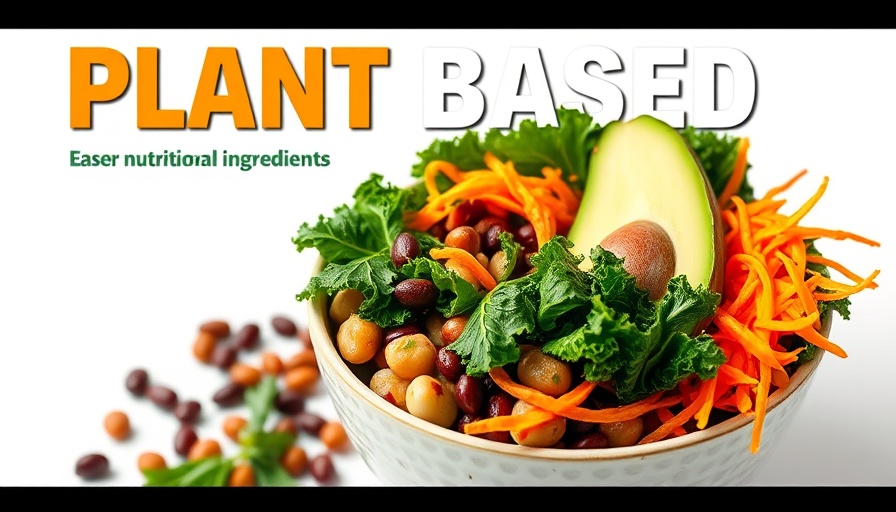
Boost the Power of Beans and Kale with a Simple Addition
Are you looking to maximize the health benefits of your meals? By making a few easy changes, you can significantly enhance the nutritional potency of everyday foods like beans, kale, and oats. Today, we’re diving into how you can elevate your meals with the right combinations, specifically focusing on the importance of vitamin C in boosting iron absorption.
In 'Make Beans & Kale 4 X More Powerful By Adding This!', the discussion dives into the importance of vitamin C for enhancing iron absorption, exploring key insights that sparked deeper analysis on our end.
Why Vitamin C Matters
Studies show that incorporating 50 to 100 mg of vitamin C into your meals can increase the absorption of non-heme iron by up to six times. This means if you’re enjoying a hearty bowl of beans or a colorful kale salad, adding a source of vitamin C can turn a good meal into a nutritional powerhouse. Imagine achieving up to a ten-fold increase in iron absorption by simply adding a handful of strawberries or a medium orange to your meal!
Simple Ways to Add Vitamin C
So, where do you get this vital vitamin? Let’s explore some delicious options:
- Breakfast Boost: Top your morning oatmeal with a medium orange or a handful of strawberries.
- Hearty Stews: Pop half a cup of raw chopped red bell pepper into your bean stew for a colorful and nutritious kick.
- Leafy Greens: Enhance your spinach and chickpea curry with a cup of broccoli and a squeeze of lemon juice.
Integrating these simple additions into your meals not only makes them tastier but also more beneficial for your body.
Avoiding Common Pitfalls
But it’s not just about adding vitamin C; timing matters too. Drinking coffee or tea right after a meal can inhibit iron absorption by up to 90%. Studies highlight that compounds like tannins and chlorogenic acid found in these beverages are responsible for this reduction. To maximize your iron intake, wait an hour or two after eating before enjoying that cup of coffee!
Addressing Plant-Based Diet Needs
For families adopting a plant-based diet, it’s crucial to be aware of specific dietary needs. Research indicates that those on a strict vegan diet have higher rates of iron deficiency anemia compared to omnivores. This means it's vital to plan meals thoughtfully, ensuring ample vitamin C sources accompany iron-rich foods.
Action Steps for Healthier Meals
To ensure that your family enjoys a healthy body with optimal iron absorption, consider meal planning that integrates these food strategies. Encourage younger family members to help select and prepare meals that combine iron-rich foods with vitamin C sources to make it a fun and educational experience!
As you navigate your nutrition journey, remember that small changes can lead to substantial health benefits. By prioritizing vitamin C alongside your favorite plant-based meals, you’re not just feeding your family; you’re fueling their bodies for a healthy life.
If you want more delicious tips and insightful facts about healthy eating, stay tuned for our future articles focused on plant-based nutrition and easy meal preparations. Your family's health journey just got a bit more exciting!
 Add Row
Add Row  Add
Add 




Write A Comment